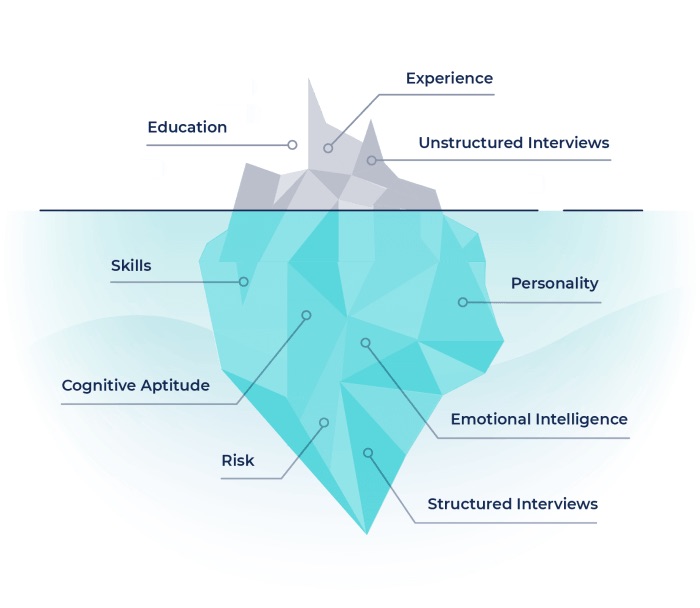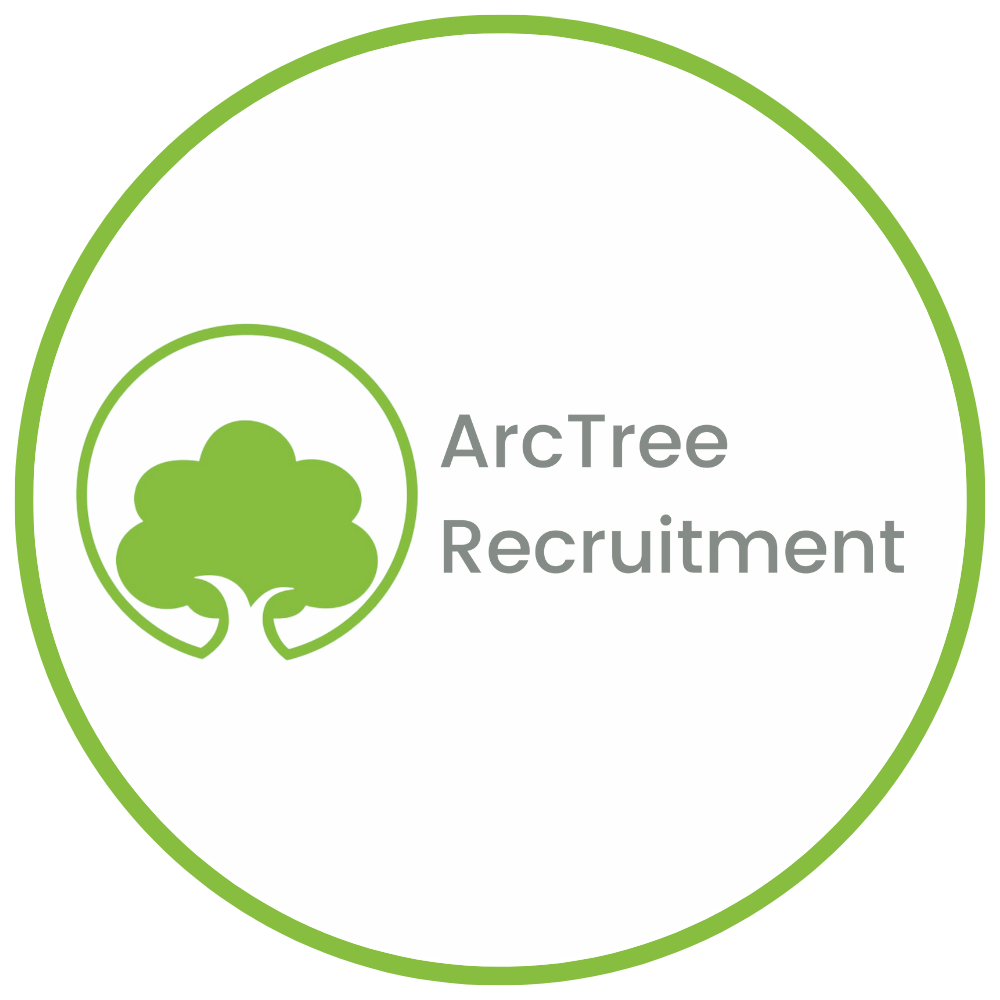Talent Analytics and Psychometrics
The goal of any assessment is to help you make better talent decisions that ultimately lead to real business results. Our assessments are rigorously validated to ensure that they predict what matters most to your business : job performance, long-term retention, and organisational performance.
Talent Analytics (Personal Insights)
The focus for ArcTree Advisory when deploying any assessment is to help our clients achieve results across their entire talent pipeline and to maximise Return On Investment (ROI).
Predictor of Job Performance
The goal of any assessment is to help you make better talent decisions that ultimately lead to real business results. Our assessments are rigorously validated to ensure that they predict what matter most to business: job performance, long-term retention, and organisational performance.
%
Chance of finding the right candidate WITHOUT psychometric testing.
%
Chance of finding the right candidate WITH psychometric testing.
Previously, hiring and performance management have been more art than science, but talent analytics changes all of that. When you’re making incredibly serious business decisions, such as who to bring into your team and how to best develop the people you have, why wouldn’t you use all of the concrete, objective data available at your fingertips? One of our favourite applications of talent analytics is the insight it can give you into the whole person.
When you’re hiring, this is critical: while people who want the job may be very skilled at telling you what you want to hear, how can you be certain that they really have the attitudes, values, behavioural traits, and aptitudes to drive your business forward?
A little about our Assessments
Tests Administered
Data Insights
Item Responses
Our Talent Acquisition Assessments
Our assessments provide a positive experience for your candidates, who can complete them on any device at a time and place of
their choosing. Using assessments
Learn more about the types of assessments we can help you with:
COGNITIVE APTITUDE
Will they learn quickly and perform well?
The landmark study of different employee selection methods was conducted by Frank L Schmidt and John E Hunter, who performed a meta-analysis of the most commonly used methods of predicting employee performance. They analysed hundreds of studies and came to a clear conclusion: the simplest and most effective way to determine how well a candidate will perform if they’re hired is to assess their cognitive aptitude. And when you combine this with a personality assessment and a structured interview, you’re collecting the most useful and predictive information possible in terms of future job performance.
Interestingly, they also found that the methods we’ve relied on in the past, such as how many years of experience a candidate has, what they say on their resume, and their level of education, had very little predictive validity: in other words, employers were almost better off hiring someone at random than relying on those information sources alone. Cognitive aptitude – also known as general mental ability – refers to how a person acquires, retains and applies information. It gives you valuable insight into how quickly a future employee might learn new information and apply it on the job.
People with higher levels of cognitive aptitude:
- Respond well to training and absorb new information quickly
- Apply what they’ve learned to new situations
- Reason and solve problems effectively.
ArcTree offers a variety of different ways to assess cognitive aptitude, depending on the role you’re hiring for, including:
- Game-based assessments (ideal for technical or graduate roles)
- Traditional cognitive aptitude tests (ideal for senior roles)
- Mechanical reasoning assessments (ideal for engineering or manufacturing roles)
- Attention skills tests (ideal for roles requiring sustained attention and concentration, such as drivers and machine operators).
RISK
Are they conscientious and reliable? Will they behave safely?
Whether you’re hiring for manufacturing or manual roles, or recruiting employees who will be visiting customers’ businesses such as technicians or salespeople, you need to be confident that the people you employ will follow the appropriate rules and procedures. We can help you identify people who are likely to behave in a reliable and conscientious way on the job, and who will abide by your safety rules and procedures.
Counterproductive work behaviours such as theft, fraud, absenteeism and unreliable behaviour cost your business in both money and reputation. By assessing candidates’ conscientiousness and willingness to follow rules, you can identify which candidates have a strong work ethic and will be more trustworthy and dependable.
Similarly, while you can provide your employees with extensive safety training and have well-developed safety procedures in place, some people will be more likely to take risks and behave in an unsafe manner at work. We measure your candidates’ attitudes to a variety of safety factors such as risk aversion, safety locus of control and dealing with stress. This helps you to identify people who are more likely to behave safely at work and encourage others to do the same, which helps you to reduce the risk of LTIs and MTIs and compensation claims.
SKILLS
Do they have the basic skills to perform the required tasks?
If you’re recruiting for roles that require basic computer proficiency, or use of the Microsoft Office suite, including Word, Excel and PowerPoint, we can help you ensure that your candidates have the right skill level. We can also assess your candidates’ ability in typing and data entry, so you can be confident that they have the fundamental skills to perform their work tasks.
And, if there are specific skills you need to assess – such as knowledge of terminology in your industry, using a particular piece of software, understanding legislation, or possessing a certain skill set – we can work with you to design a test that will help you identify candidates with the required levels of skill or knowledge. These kinds of tests are an excellent complement to our cognitive aptitude, personality, emotional intelligence and risk assessments and help you to get a more complete and reliable picture of each candidate before you make a critical hiring decision.
EMOTIONAL INTELLIGENCE
Are they empathetic, and able to understand and manage emotions effectively?
Emotional intelligence (EI) is becoming increasingly recognised as a key skill for the workforce of the future. Smart employers understand that while people might have the aptitude to do a job well, the ability to interact effectively with others and to understand and manage emotions appropriately is just as critical to their success.
It’s especially important for roles that involve communicating with others, such as leadership or managerial roles, customer service and support jobs, and any job requiring teamwork and collaboration. Organisations who are able to identify people with the skills to recognise, comprehend and work effectively with their own and other people’s emotions gain a significant competitive advantage.
However, not all emotional intelligence assessments are created equal. The majority of assessments simply ask candidates to “self-assess” or tell you about their levels of emotional intelligence. As you’d expect, most candidates believe themselves to be highly emotionally intelligent and generally portray themselves positively in such an assessment.
The more reliable and valid way to assess EI is with an ability-based assessment, that objectively measures how well candidates can complete a variety of tasks that require emotional intelligence in three distinct areas:
- Perceiving or identifying emotions correctly and accurately
- Understanding emotional reactions to specific situations and how emotions might change
- Managing emotions by choosing the most appropriate course of behaviour in various workplace situations.
We assess EI with a highly interactive and engaging assessment that accurately measures your candidates’ ability in these key areas and helps you identify people who will lead, communicate, empathise and collaborate well with others.
PERSONALITY
Does the job match their personality traits? Are they a good fit for your organisation?
While cognitive aptitude assessments focus on whether candidates will be able to perform well on the job, personality assessments help you to identify whether candidates have the right traits to succeed in a role, and if they’re likely to be committed and engaged when working for your organisation.
Certain personality traits are linked to success in particular roles: for example, people who are naturally competitive and assertive tend to perform well in sales roles, while people who are patient and agreeable can be more successful in customer support roles.
Our personality assessments are based on the well-respected and endorsed “Big Five” model of personality. They give you a reliable and valid assessment of your candidates’ core traits, which generally remain stable over time. In addition, we can compare your candidates’ personality to the traits associated with successful performance in specific roles, so you can be confident that the people you hire are a good fit for the job.
If you’re looking for people who will be committed to your organisation and stay for longer, we can also help you to analyse how well your candidates’ most important work preferences will be met by your organisation. This helps you to identify which candidates will be more comfortable in their jobs and working for your company, which in turn leads to greater tenure and engagement.
Explore our other Services
OUR SERVICES







